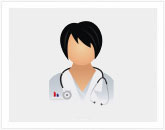
Hypertension is caused due to consistent high pressure of the blood against the artery walls. This increased pressure can lead to serious health problems, such as heart disease, stroke, and kidney damage. Blood pressure is measured in millimeters of mercury (mmHg) and is represented by two numbers: systolic pressure (the pressure when the heart beats) and diastolic pressure (the pressure when the heart is at rest). A reading of 120/80 mmHg is considered normal, while a reading of 130/80 mmHg or higher is classified as hypertension.
Hypertension can be caused by a variety of factors, both controllable and uncontrollable. These include:
1. Genetics: A family history of hypertension increases the likelihood of developing the condition
2. Age: The risk of hypertension increases with age, as the blood vessels naturally become less flexible.
3. Obesity: Excess weight can put extra strain on the heart, leading to higher blood pressure.
4. Sedentary Lifestyle: Lack of physical activity can contribute to weight gain and increased blood pressure.
5. Diet: A diet high in salt, saturated fats, and low in potassium can increase blood pressure.
6. Alcohol and Tobacco Use: Both can raise blood pressure levels and damage the heart.
7. Chronic Conditions: Diseases such as diabetes, kidney disease, and sleep apnea can contribute to the development of hypertension.
8. Stress: Chronic stress may lead to unhealthy habits, such as poor diet and lack of exercise, which can increase blood pressure.
Symptoms of Hypertension
Hypertension is often called the "silent killer" because it may not present any symptoms, especially in its early stages. However, some individuals may experience:
1. Headaches: Severe headaches, particularly in the morning, can be a sign of high blood pressure.
2. Dizziness: Feeling lightheaded or dizzy can occur with elevated blood pressure.
3. Shortness of Breath: Difficulty breathing can be a symptom, especially during physical activity.
4. Nosebleeds: Frequent nosebleeds may indicate high blood pressure.
5. Blurred Vision: High blood pressure can affect vision, leading to blurriness or other visual disturbances.
It is important to note that these symptoms can also be associated with other conditions. Therefore, regular blood pressure monitoring is crucial for accurate diagnosis and management.
Risks Associated with Hypertension
Uncontrolled hypertension can lead to serious health complications, including:
1. Heart Disease: Hypertension is a major risk factor for coronary artery disease, heart failure, and heart attacks. The increased pressure can damage blood vessels and the heart over time.
2. Stroke: High blood pressure can lead to the rupture or blockage of arteries that supply blood to the brain, resulting in a stroke.
3. Kidney Damage: The kidneys filter waste from the blood. High blood pressure can damage the blood vessels in the kidneys, leading to kidney disease or failure.
4. Vision Loss: Hypertension can cause damage to the blood vessels in the eyes, potentially leading to blindness.
5. Aneurysm: Increased pressure can weaken blood vessels, causing them to bulge and potentially rupture, leading to life-threatening internal bleeding.
Preventing and Managing Hypertension
Managing hypertension involves lifestyle changes and, in some cases, medication. Here are some key strategies:
1. Healthy Diet: Adopt a diet rich in fruits, vegetables, whole grains, and lean proteins. Limit salt, saturated fats, and sugar.
2. Regular Exercise: Aim for at least 150 minutes of moderate aerobic activity or 75 minutes of vigorous activity each week.
3. Maintain a Healthy Weight: Losing excess weight can significantly reduce blood pressure.
4. Limit Alcohol and Quit Smoking: Both can negatively impact blood pressure and overall heart health.
5. Monitor Blood Pressure: Regular monitoring helps keep track of blood pressure levels and ensures timely intervention if necessary.
Conclusion
Hypertension is a common but serious condition that requires attention and management. By understanding the causes of hypertension, recognizing the symptoms, and being aware of the risks associated with high blood pressure, individuals can take proactive steps to maintain their health. Implementing lifestyle changes, such as a healthy diet and regular exercise, can significantly lower blood pressure and reduce the risk of complications. Regular check-ups and blood pressure monitoring are crucial in preventing the silent progression of this condition. By taking these steps, we can protect our heart, kidneys, and overall health, leading to a better quality of life.

Comments should be on the topic and should not be abusive. The editorial team reserves the right to review and moderate the comments posted on the site.
I HAVE READ YOUR POST ON HYPERTENSION. THERE ARE PATIENTS TAKING TELMISARTAN 40MG FOR LAST TWO YEARS. PATIENTS BP WAS UNDER CONTROL, NOW IT SEEMS PATIENT IS NOT RESPONDING TO SAME MEDICINE, OR REQUIRES HIGHER DOSE OR CHANGE THE MOLECULE. REGARDING THIS I WILL LIKE TO GET MORE INFORMATION FROM YOU. THANKS